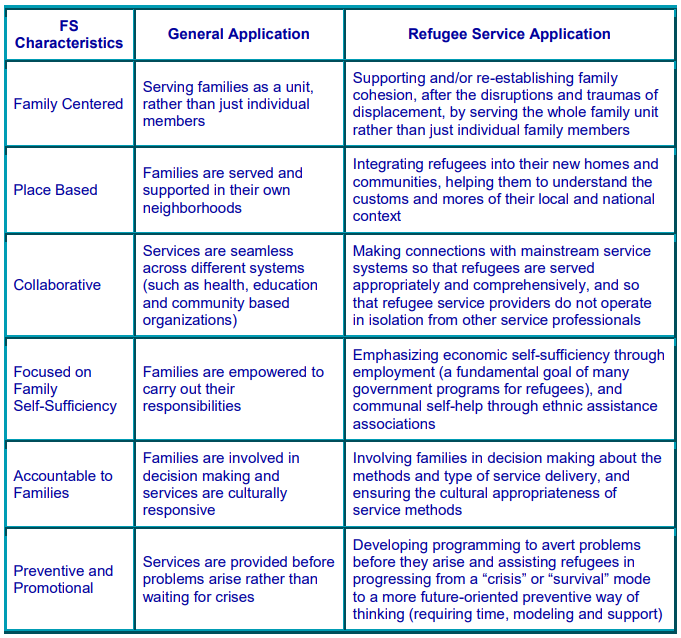It is difficult to parent here. [My children] are much more American than we are, and it is difficult to get them to listen to us and to value our culture. [1]
This quote, from an East African refugee mother living in the United States, reflects the frustrations and challenges faced by many refugee and immigrant parents raising their children in a new country. Even experienced parents can face such difficulties in blending the cultures and practices of different countries.
Refugee parents need support in maintaining strong relationships with their children and in preventing problems that can limit their children’s success in a new country. To aid refugee serving agencies in helping parents like the one quoted above, BRYCS has created a new resource, Raising Children in a New Country: A Toolkit for Working with Newcomer Parents. The Toolkit includes:
- An overview of research and good practice in parent education programs for refugees
- Detailed information about free and fee-based parent support and education resources for refugee-serving agencies, including free access to certain curricula, handouts in different languages and reports
- Program development guidance, including fundraising resources and evaluation tools.
This Parenting Toolkit is ideal for mutual assistance associations (MAAs), refugee resettlement agencies, and other organizations providing parent support and education programs for refugees and newcomers.
BRYCS’ goals in developing this parenting toolkit have been twofold:
- To summarize the “state of the field” in parent support and education with refugee families,and
- To gather concrete parenting resources, appropriate for use with refugee families, in aneasily-accessible format for refugee-serving agencies.
This new BRYCS resource is designed to make it easier and feasible for refugee-serving agencies to establish effective parent support programs. The Parenting Toolkit is available in the BRYCS Clearinghouse in PDF format.
Since its beginning, the BRYCS project has looked at ways to support refugee parents in the challenging task of raising children in an environment where the culture, language and customs are unfamiliar, while recognizing the inherent cultural and personal strengths that refugee parents bring to this responsibility. The “family strengthening” model of service delivery to families and communities is particularly applicable to refugee serving agencies. It is defined by the Family Strengthening Policy Center as:
A deliberate process of giving parents the necessary opportunities, relationships, networks, and supports to raise their children successfully, which includes involving parents as decision-makers in how their communities meet family needs. [2]
The BRYCS “Parenting Toolkit” can help refugee serving agencies implement a family strengthening approach in serving refugee families. Six characteristics of the family strengthening (FS) approach are listed below [3] along with some possible applications to the refugee serving context.

The family strengthening approach is a “framework based on the belief that the best way to protect and support children is by strengthening and supporting their families.” [4] In the spirit of this approach, the BRYCS Parenting Toolkit can help service providers to strengthen and support refugee families by recognizing their intrinsic assets and minimizing potential problems, and thereby help to protect and support refugee children by easing the difficulties for displaced parents raising children in a new country.
